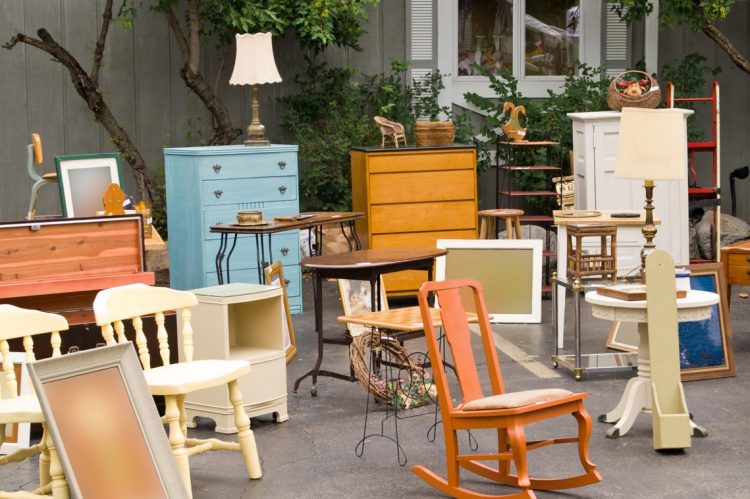Attending an estate sale might seem like looking for bargains at a garage sale. Items are priced, and people are looking for a good bargain, but there are some important differences.
If you have ever wondered what an estate sale is and how to hold one, we will take a look. We will cover some essential things to know about estate selling.
What is an estate sale?
Usually, an estate sale means that the property and everything inside it has to be sold, ordered by a probate court. There are a few reasons why estate selling might happen:
- The owner of the home died without leaving an heir. The probate court will order everything to be sold, dividing the proceeds among beneficiaries.
- The owner’s heirs cannot agree on what to do with the property, and the court orders the liquidation of assets so that they can be divided between the heirs.
- The estate’s heirs do not want to keep the property and choose an estate sale to deal with it.
- The person who owned the home asks for an estate sale in their will.
Occasionally, homeowners choose an estate sale when downsizing and moving long distances.
Holding an estate sale
Having an estate sale is a quick way to clear a home of possessions to allow it to be sold. Some owners will have an estate sale before putting their homes on the market as part of the staging process. Estate sales usually contain items that have value to a broad scope of people.
Selling the items is an alternative to having a charity pick up donations, although that can be done too for items that don’t get sold.
Sometimes court orders will require certain things to happen, other times, it will be at your discretion, but you will need to do a few things:
Remove personal items
The first step is to look through the possessions in the home to find personal items. They could be sentimental or financial information, but whatever it is, you will want to ensure it isn’t included in the sale.
Pricing items
Hiring a professional appraiser might be an unwanted expense, but it could prevent you from losing money selling items for too little. This is particularly true when artwork, jewelry, silverware, expensive equipment, and big-ticket electronics exist.
If there are collectibles, they could be worth considerably more than you expect. Be careful what you throw away, as some things that might not appear special could be expensive.
What is an estate seller?
You are ready to hold the sale with the items sorted and priced. You can do this yourself or choose an estate seller or estate sale company to do it for you. The judge may have mandated estate sellers be used to ensure it is fair for all the beneficiaries.
The advantages of using a professional estate seller mean that you don’t have to physically be present on the day or worry about what happens to unsold items. They will also advertise the sale so that suitable buyers help you get the most from the possessions sold.
If you are dealing with the home of a loved one, an estate sale company will deal with many of the jobs you won’t want to. The downside of this, however, is that you will share the proceeds with this company. This means they will work harder on your behalf because it is in their best interests, but many people will avoid them.
How much does it cost to use an estate sale company?
Estate sellers can take care of most of the stages required to hold an estate sale. They will assess, though not appraise, price, display, and photograph items. They will do the marketing for the sale, including street signs and online notifications. They will handle the running of the sale and dispose of unsold items.
When the sale is complete, they will write you a check for your share of the proceeds. The money they will take from the sale could be between 30% and 50% of the proceeds. Sometimes they use a sliding scale, where the larger the sale, the lower their percentage.
When comparing estate sellers, their fees will be high on your list of deciding factors. But you should also consider how well the company performs. Check their customer feedback to see what other people think. You could even go to a sale they are holding to see how they run things.
What happens after the sale?
With the sale completed, the proceeds can be divided between heirs after the estate sale company has taken their fees. There might be additional charges to deal with unsold items, but after that, it will be up to you to hire a listing agent to sell the home. Sometimes an estate sale will take place after a buyer has also been found for the home.
Final thoughts
Estate selling is quite common across the US. Using an estate sale to liquidate any remaining valuable possessions that an owner or family members do not want is not unusual. They can be an excellent way of generating additional cash from the property.
Bill Gassett is a nationally recognized real estate leader who has been helping people buy and sell MetroWest Massachusetts real estate for the past 35 years.












